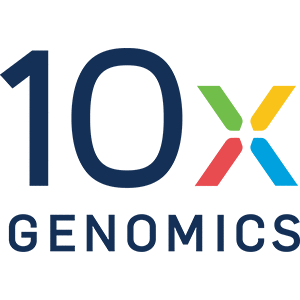
Our Speakers
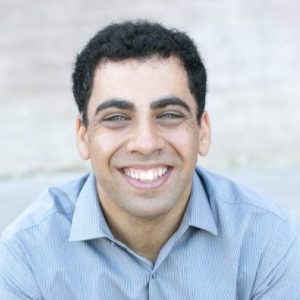
Nima Aghaeepour is an Assistant Professor at Stanford University. He performed his graduate studies in the University of British Columbia with Ryan Brinkman and Holger Hoos, in collaboration with Mario Roederer and Pratip Chattopadhyay at the National Institutes of Health, followed by a postdoctoral fellowship with Garry Nolan at Stanford University. His laboratory develops machine learning/artificial intelligence methods to study the immune system in clinical settings. His interest focus on the intersection of data sciences, immunology, and clinical phenotyping. His research includes integrative “multiomics” analysis across cytomics, genomics, and proteomics assays, as well as quantitative clinical phenotyping using wearable devices, to produce a holistic understanding of immunity.
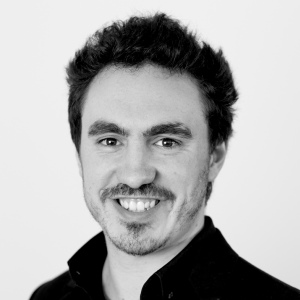
Dr. Ashhurst's research is focused on analysing cellular infiltration in the virally infected CNS, and understanding how the haematopoietic system is reorganised in the bone marrow to change cellular output in response to infection. To do this, his team utilises high-dimensional cytometry systems (such as mass cytometry and 29-parameter next generation fluorescence cytometry) to interrogate cellular systems in a range of disease contexts. To aid their analysis, they apply and improve existing computational analysis tools, in addition to developing their own novel algorithms for analysing high dimensional datasets. Dr. Ashhurst and his team are always eager for new collaborations on multiple fronts.
Dr. Back is an Emeritus ISAC SRL Emerging Leader (2015-2019), a member of the Steering Committee for GLIIFCA, and Vice-Chair of the ASCP Board of Certification Cytometry Examination Committee. As Deputy Director of an SRL much of her focus is on efficient and effective delivery of services to facility users. Her goal is to ensure the success of the researchers using MICR by providing expertise in flow cytometry techniques, individualized assay design consultation, and data analysis support. She also strives to push my users out of their comfort zones, expand their use and understanding of flow cytometry, and make their data more functional and reproducible. Her research interests focus on the tumor microenvironment, particularly on the role the immune system plays in cancer therapies and tumor regression.
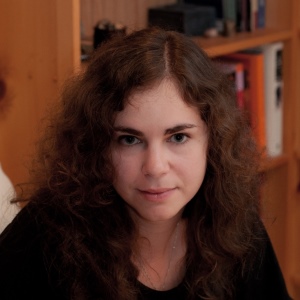
Dr. Belkina received her MD in Russia and moved to the US to pursue a career in translational research. After completing a PhD in Molecular Medicine, in 2013 she joined the Boston University Flow Cytometry Core Facility to fill a position that Dr. Snyder-Cappione, the recently appointed core director, tailored to fit her amalgamated interest in immunology research, cytometry method development, and SRL management. She was promoted to Senior Research Specialist in 2015 and to Associate Director of the Flow Core in 2018. At the same time, she was fully engaged in postdoctoral research in collaboration with several labs on campus and was recruited as an Assistant Professor in the BUSM Department of Pathology and Laboratory Medicine in June 2018. Currently, she has a joint academic/сore faculty appointment and serves as a core facility director. In 2015, she was recognized by ISAC as an SRL Emerging Leader, which started her involvement in the Society’s activities. She has attended the last six CYTO meetings, presented oral and poster presentations every year since 2015, and presented a pre-congress tutorial in 2019. She currently serves as a member of ISAC’s Flow Content Task Force and Membership Services Committee.
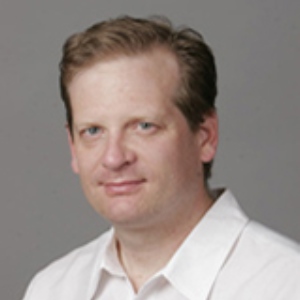
Dr. Michael Betts received his PhD in Microbiology and Immunology from the University of North Carolina in 1998, studying CD8+ T cell responses in HIV elite controllers. He completed his postdoctoral training with Dr. Richard Koup at the NIH Vaccine Research Center in 2005, where he continued to define HIV-specific T cell responses through the development and implementation of novel flow-cytometry based assays. He started his lab at the University of Pennsylvania Department of Microbiology in 2005, rising to the rank of Professor in 2019. The goal of his scientific research is to gain an understanding of the nature of T cell immune responses to pathogens and auto-antigens in humans. Towards this end, his lab has developed and adapted many immunological assays for the study of viral-specific immune responses in humans, including intracellular cytokine staining, CTL epitope mapping, CD8+ T cells degranulation measurement, and polyfunctional flow cytometry that are broadly used by the global human immunology research community. Since 2012 the lab has transitioned to the study of human and nonhuman primate lymphoid tissues and fluids, including various regional lymph nodes, spleen, thoracic duct lymph fluid, and oral lymphoid tissues in the context of HIV infection, vaccination, diabetes, and multi-centric Castleman’s disease.
Dr. Ryan Brinkman’s research is focused on developing and applying flow cytometry bioinformatics approaches to advance our understanding of human health and disease. Early work centered on creating the required data standards and a free, open source computational infrastructure to support high throughput computational statistical analysis of flow data. Recent efforts have concentrated around developing complete analysis pipelines that cover all the steps from flow cytometry data pre-processing to automated gating and biomarker discovery. Dr. Brinkman is also applying these methodologies as part of collaborative projects, primarily in the area of immunotherapy clinical trials. Dr. Brinkman is active in the community as Chair of ISAC’s Data Standards Task Force and the development of Flow Repository. Dr. Brinkman is a ISAC Distinguished Service Awardee.
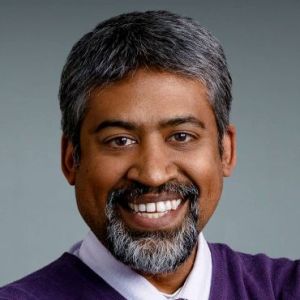
Pratip Chattopadhyay, PhD is an Associate Professor (Pathology) and founding Director of NYU Langone Health’s Precision Immunology Laboratory (PIL). His laboratory performs independent research in tumor immunology and provides cutting-edge immune monitoring services for a wide variety of biomedical disciplines (cancer, infectious disease, rheumatology). We use high parameter cytometry technologies, including 30-parameter flow cytometry and combined protein/mRNA analysis by RNA sequencing (molecular cytometry), to reveal biomarkers that predict patient outcomes, better understand disease pathogenesis, and inform rational design of combination drug therapies.
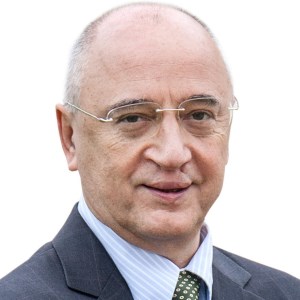
Andrea Cossarizza is a Full Professor of Pathology and Immunology, Vice President of the Faculty of Medicine at the University of Modena and Reggio Emilia, and current Past President of ISAC. He has been studying the molecular and cellular basis of several diseases that involve the immune system for 35 years. He is currently at the forefront of the fight against COVID-19, and has provided the first contributions regarding the importance of cytometry in understanding the immune response to SARS-CoV-2. As of May 2020, he has published 332 papers on peer reviewed journal, has an H index of 79 and has received over 33,000 citations.
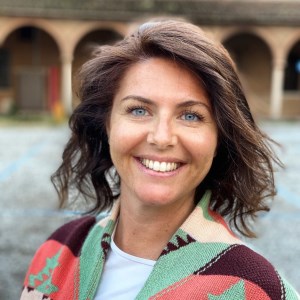
Sara De Biasi is interested in the dynamics of T cell homeostasis and functions in conditions of acquired immunodeficiencies, with a special focus on HIV infection and solid organ transplantation and related therapies. More recently, her work focused on multiple sclerosis as a model to study autoimmunity. In particular, she is investigating the role of innate-like T cells (iNKT cells), rare cell populations among peripheral blood mononuclear cells. In addition, she took advantage of the experience acquired in the field of rare events detection such as iNKT cells to study circulating endothelial cells (CEC), their precursor (EPC) in different type of cancers.
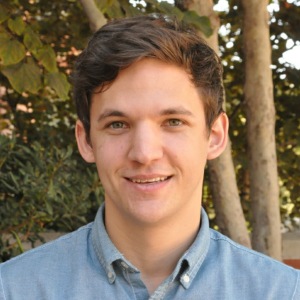
Joseph (Joe) de Rutte, received his B.S. and M.S. in Mechanical Engineering from the University of California, Santa Barbara in 2014 and 2016. He is currently a PhD Candidate in the department of Bioengineering at the University of California, Los Angeles where he is developing microparticle technologies for a range of applications including regenerative medicine, single-cell analysis, and diagnostics. Recently he has pioneered the use of structured microparticles to create sub-nanoliter compartments for performing quantitative assays with standard lab infrastructure. In recognition of the impact of his “Lab on a Particle” work, he has been awarded the 2020 Society of Laboratory Automation and Screening Innovation Award. Joe is co-founder and President of Partillion Bioscience, a recent startup aiming to commercialize the lab on a particle technology to make single-cell and single-molecule biotechnology accessible to all researchers, empowering them to make quantum leaps in life science, diagnostics, and drug discovery.
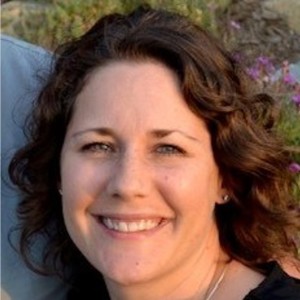
After graduate school, Monica quickly found her passion for flow cytometry using a FACScan in her first lab in the department of Rheumatology at Cincinnati Children’s Hospital Medical Center. In 2008, she created and managed the Research Flow Cytometry Core at Cincinnati Children’s. Over the next ten years she helped facilitate the growth of the core in instrumentation, infrastructure, staff and clientele. She became very active in the cytometry community by co-founding a local cytometry organization, joining the Flow Cytometry Research Group through the Association for Biomolecular Resource Facilities (ABRF) and serving on ISAC Council from 2014-2018. In addition, she served as a member of the organizing committee for the Core Managers workshop for GLIIFCA, chaired the ISAC SRL Services Committee and served on other ISAC committees. She remains a member of the ISAC Membership Services Committee. Most recently she found her passion steer towards industry and joined Cytek Biosciences to help support customers that are using the Aurora spectral cytometer. She is now the US Manager of Application Support, leading a team of talented Applications Specialists for Cytek.
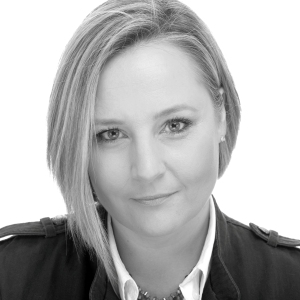
Ursula Errington is a former news correspondent and business news presenter for Sky News in the UK. During a broadcast career of more than a decade, she also worked for BBC regional news as a news anchor and Monocle 24 Radio as a breakfast presenter on the station’s flagship current affairs program. During her career as a journalist, Ursula worked on a huge variety of stories across domestic, foreign, political and business news, bringing her incisive style of interviewing to millions of viewers and listeners. She has interviewed two UK Prime Ministers and three Chancellors of the Exchequer, household name CEOs and countless academics, analysts, experts and members of the public with a story to tell. Today, Ursula runs Hard Truth Media Ltd and is a Special Communications Advisor to VIPs and C-Suite executives. She travels the world preparing them to deliver speeches, participate in panel discussions and conduct media interviews. Ursula is passionate about helping clients develop clear, authentic, audience-centric messages they can deliver with ease, because they truly believe in them.
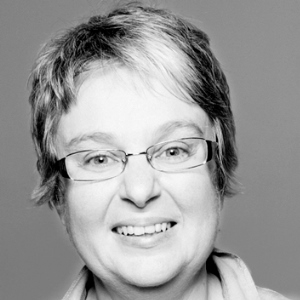
At Cardiff University, Rachel leads an inter-disciplinary R&D programme. A cell biologist and microscopist by trade, she leads a team that focuses on the biophysics of cancer. RJE is chair of the Tissue MicroEnvironment Group (TMEG), whose vision is to foster creative collaborations between engineering, the physical sciences and clinicians through focused research funding to realise these in clinical settings for the benefit of the patient. Currently, TMEG focuses on the cellular-molecular dynamics of prostate, lung and bone tumour microenvironment. Including the incorporation of biomechanical, physiological and immune infiltration influences. We are developing new IP for the identification of potential diagnostic biomarkers using extracellular vesicle liquid biopsies and, most recently, new theranostics targeting the colon.
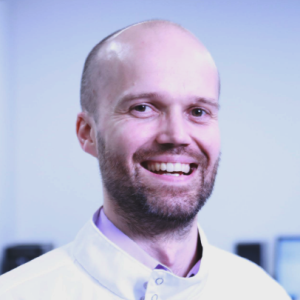
Dr Filby is currently Director of the Newcastle University Cytometry and Single Cell Core Technology Unit. He leads a dedicated team of cytometry specialists with the sole aim of developing and implementing comprehensive, cutting edge cytometry methods for the wider research community at Newcastle University and beyond. A significant part of his focus is the development of novel cytometry-based techniques that have underpinned several high profile publications in journals including Science (2012, 2017 and 2018), Cell (2013) and Nature (2018). He also received the Cytometry Part A “paper of the year” accolade in 2011 for his work on debunking the myth of asymmetric division in adaptive immunity. He specialises in Imaging Flow Cytometry with a particular focus on “label-free” characterisation of cell phenotypes and transition states using machine and deep learning approaches. Dr Filby is also an ISAC Council member for "technology development". Prior to this, he was one of the first people selected as part of the “Shared Resource Laboratory (SRL) Emerging Leaders” program.
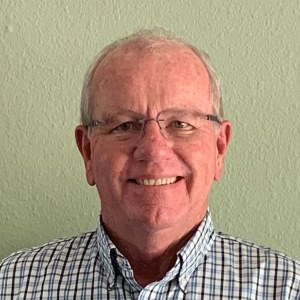
Dr. Galbraith is a Professor in the University of Arizona School of Plant Sciences, and is a member of the Bio5 Institute, the Arizona Cancer Center. He has an adjunct membership in the Department of Biomedical Engineering, and is an Associate of the Institute for the Environment. He was recently appointed Honorary Dean of the School of Life Sciences at Henan University, Kaifeng, China. He was trained at Cambridge University, and held a NATO postdoctoral fellowship at Stanford University. His first academic appointment was at the University of Nebraska-Lincoln. Dr. Galbraith's research interests include biological instrumentation, developmental, tissue and cell-specific gene expression in eukaryotes, functional genomics and proteomics, and issues in biodiversity.
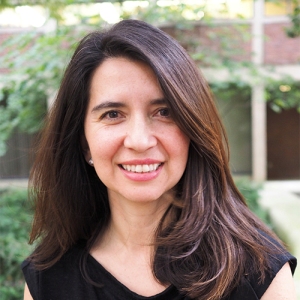
Vivian Gamas' laboratory is interested in understanding the dynamic properties of the mitochondria in the context of neural development and tumorigenesis. I will discuss the approaches we are using to characterize the status of the mitochondrial network during development and tumorigenesis. Our experimental paradigm includes classical biochemical and cellular approaches as well as state of the art imaging techniques and human brain organoids derived from patients' cells to integrate information at the single-cell level into the overall complexity of the brain environment. Our overall goal is to understand the molecular basis of the heterogeneity of mitochondrial dynamics/function in brain development, and to reveal how this heterogeneity may underlie differences in the response of brain tumor cells to therapy. This research has been supported by NIH/NIGMS 1R35GM128915-01; NIH/NCI 1R21 CA227483-01A1; and the Precision Medicine and Mental Health Initiative sponsored by the Vanderbilt Brain Institute.
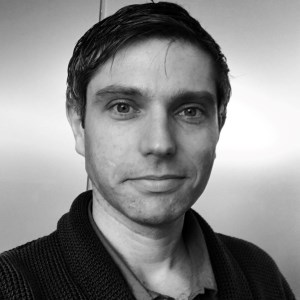
Dr. Gerner obtained his Ph.D. in Immunology in 2009 from the University of Minnesota with Dr. Matthew Mescher, studying innate and adaptive immune responses to cancer. He completed his postdoc at the NIH with Dr. Ronald Germain, where he developed and used cutting-edge imaging techniques to study the organization of the immune system in vivo. In 2015, Dr. Gerner joined the University of Washington, Department of Immunology as Assistant Professor. Dr. Gerner investigates how local tissue microenvironments shape the generation of innate and adaptive immune responses during vaccination, infection and cancer. The laboratory continues to develop advanced microscopy and analytical tools to study immune processes on the anatomical, cellular and molecular levels directly in situ.
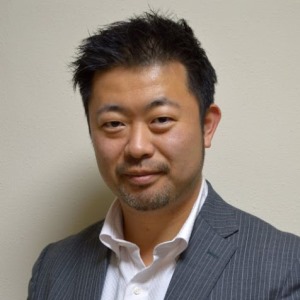
Keisuke Goda is a professor in the Department of Chemistry at the University of Tokyo, an adjunct professor in the Institute of Technological Sciences at Wuhan University, and an adjunct professor in the Department of Bioengineering at UCLA. He obtained a BA degree from UC Berkeley summa cum laude in 2001 and a PhD from MIT in 2007, both in physics. At MIT, he worked on the development of gravitational-wave detectors in the LIGO group which led to the 2017 Nobel Prize in Physics. After several years of work on high-speed imaging and microfluidics at UCLA, he joined the University of Tokyo as a professor. His research group focuses on the development of serendipity-enabling technologies based on molecular imaging and spectroscopy together with microfluidics and computational analytics to push the frontier of science. He is a deputy editor of APL Photonics (AIP Publishing) and an associate editor of Cytometry Part A (Wiley). He has published >350 journal and conference papers, filed >30 patents, and received numerous awards such as Japan Academy Medal, JSPS Prize, and WIRED Audi Innovation Award. He is a fellow of SPIE and RSC.
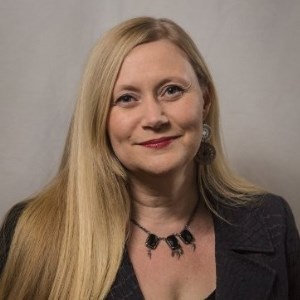
Cherie has been a long standing member of the cytometry community for over 20 years working in hematopathology and biotech laboratories. She is passionate about development of robust biomarker assays to support all phases of drug development. Currently, she oversees the Flow Cytometry Biomarker group in the Development Sciences department at Genentech, a member of Roche Group in San Francisco, CA. Her group is responsible for the development and validation of clinical biomarker assays in the areas of infectious, autoimmune, and oncology diseases. She has served as the co-chair of Flow Cytometry Action Committee of the American Association of Pharmaceutical Scientists (AAPS) and has co-authored many consensus/recommendation papers on topics specific to drug development such as instrument and assay validation, sample stability, and receptor occupancy.
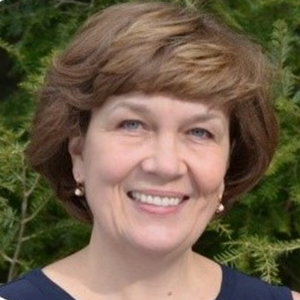
Dr. Holden’s area of expertise and interests are in advancing the commercialization of breakthrough developments in cancer cell biology, personalized biomarkers of disease progression and therapy together with the implementation of imaging cytometry systems for cell-based analyses. During her career she led multifunctional teams as Chief Strategic Marketing at Thorlabs, President and CEO of Compucyte Corporation, and Business Development Manager/Regional Director at Chiron Diagnostics. Today Elena leads development and commercialization of IDV products as President and CEO, Tomocube USA, Inc. and Chief Strategy Officer, TomoCube, South Korea. She is also an Associate Editor of the Cytometry Part A, the official journal of ISAC and a committee member of the SPIE/ Photonics West Quantitative Phase Imaging.
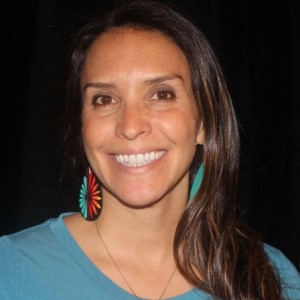
At NMSU, Dr. Houston is PI of the Laboratory for Flow Cytometry and Related Biophotonics, which is supported by NIH project: R01GM129859 (2018-2022). The research she directs include flow cytometry instrument optimization, fluorescence dynamics, high-throughput systems, optofluidics, and fluorescence bioprobes. Dr. Houston came to NMSU after completing a Director’s Postdoctoral Fellowship within the Bioscience Division at the Los Alamos National Laboratory (2006-2009). Her early training also included a Research Associate appointment at the Baylor College of Medicine, Department of Radiology in the Houston Texas Medical Center (2005-2006). Prior to this she received her Ph.D. in Chemical Engineering from Texas A&M University, College Station, TX (2000-2005). She is Treasurer of ISAC, Chair of ISAC's Finance committee, and serves on several other ISAC committees. Additionally, Dr. Houston is Chair of the Science & Innovation-10 subcommittee for the CLEO Laser Science to Photonic Applications Conference Program. She is a regular panel member to NSF and NIH owing to her international leadership in cytometry instrumentation research. Her scientific endeavors have been presented in over 200 abstracts, 40 publications, and 25 invited talks. In 2018 Dr. Houston became a Faculty Fulbright Scholar and lived for 6 months in Saitama-shi Japan, where she worked at Saitama University on research in fluorescence bioprobe development.
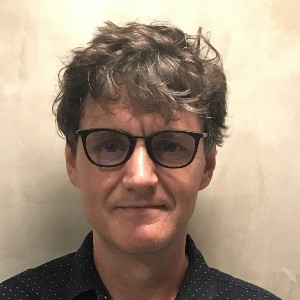
After working 24 years in Melbourne, in February 2008 Dr. Hutchinson was appointed as the head of the Unidade de Citometria de Fluxo at the Instituo de Medicina Molecular in Lisbon, Portugal. This flow cytometry lab serviced more than 150 researchers. Since July 2009, he has been in charge of the core flow cytometry facility at the Life Sciences Institute of the National University of Singapore, which has 4 analysers and 3 cell sorters. He joined ISAC in 1986 and has attended many CYTO meetings since then. During his working stint in Australia, he was involved in the Australian Flow Cytometry Group (now known as the Australasian Cytometry Society) and was a key organising committee member for the 2001 and 2007 annual meetings. His active involvement in conferences continued in helping to initiate and organise the first CYTO Asia conference in Singapore in 2017, which was a tremendous success with positive responses from the region. He is currently a member of the ISAC Live Education Task Force and has organised and participated in flow cytometry workshops in Singapore, Indonesia, India, Malaysia, and Vietnam since 2017.
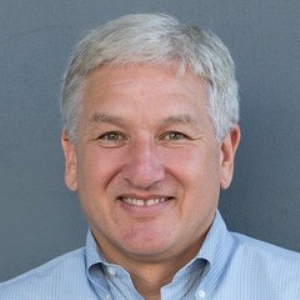
With more than 25 years of life technology experience, William (Bill) Hyun is a respected expert in both basic research and clinical lab technology development. At the University of California San Francisco, Bill directed one of the largest academic core facilities in the world with a strong concentration on cytometry and genomic technologies implementing a myriad of research, translational and clinical applications. His academic career included joint appointments at UC Berkeley and the Lawrence Berkeley National Lab, three honorary doctorates, and authorship of over 100 peer-reviewed publications. Bill has been directly involved in the conception, design, engineering and validation of numerous commercially successful analytical instruments, consumable products, and software programs, often in collaboration with companies like Carl Zeiss, Becton Dickinson, and Sony Corp.
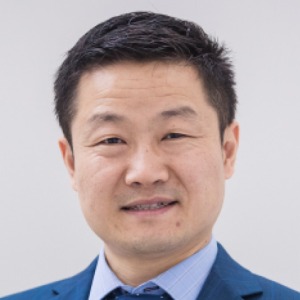
Distinguished Professor Dayong Jin directs the Australian Research Council IDEAL Research Hub and Institute for Biomedical Materials & Devices (IBMD), at the University of Technology Sydney. His research has been in the physical, engineering and interdisciplinary sciences. He is a technology developer with expertise covering optics, luminescent materials, sensing, automation devices, microscopy imaging, and analytical chemistry to enable rapid detection of cells and molecules and engineering of sensors and photonics devices. He is an Emeritus ISAC Marylou Ingram Scholar (2007) and the winner of the Australian Museum Eureka Prize for Interdisciplinary Scientific Research in 2015, the Australian Academy of Science John Booker Medalist in 2017, and the Prime Minister’s Malcolm McIntosh Prize for Physical Scientist of the Year 2017.
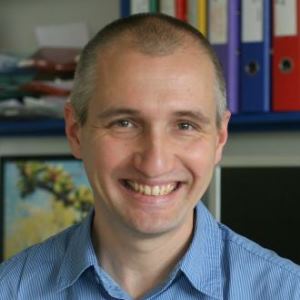
Tomáš Kalina graduated MD in 2000 from Second Medical School, Charles University Prague and started his research and diagnostic carrier in Prague (leukemia diagnostics and biology) and continued onto a postdoctoral fellowship at Fred Hutchinson Cancer Research Center, Seattle, WA, USA (immune reconstitution post-BMT). He received a PhD in Immunology in 2005 and became an ISAC Marylou Ingram Scholar in 2010. He is a president of the Czech Society for Analytical Cytometry, a former ISAC Councilor, and a member of the HCDM council. Throughout his career, he focused on development and translational application of flow cytometry-based techniques (immunodeficiency, immune monitoring, leukemia phenotyping, minimal residual disease monitoring, bead-based proteomics, and algorithmic data analysis). He is a founding member of EuroFlow consortium, where he was responsible for coordination of the technical aspects and design of flow cytometry procedures.
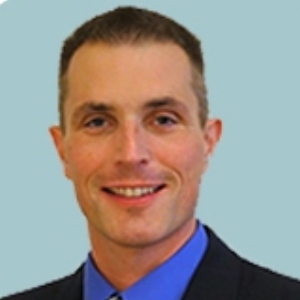
Dr. Kleen earned his Doctorate 2004 in Biology with specialty in Immunology and Virology from the Bayerische Julius-Maximilians-University, Würzburg, Bavaria, Germany. During his Ph.D. studies at Case Western Reserve University in Cleveland, Ohio, USA (1999 to 2003), he investigated conditions of the human immune system in patients with HIV infections and conducted research on the facilitation of umbilical cord blood stem cell transplantation for immune reconstitution of adult patients with life-threatening hematological disorders and malignancies after treatment with full myelo-ablative regimens. He is a renowned expert in immunology with strategic focus on monitoring of Cell Mediated Immunity and Bio-markers during cancer immunotherapy, inflammatory disease, vaccine development and detection of adverse immune reactions during drug development. Frequent advisor to pharmaceutical entities and governmental agencies about validated, standardized, ISO and GLP compliant technologies, which can be deployed to increase the success rate and de-risk modern clinical trials, from sample logistics to immune monitoring. Dr. Kleen served on the editorial board of the Journal for ImmunoTherapy of Cancer (JITC) until Nov 2019 and is a member of the SITC-FDA Task Force on Immunotherapy Biomarkers, which focuses on the unique issues related to immunologic monitoring assays as well as novel methodologies for assessing the immune landscape in cancer.
Dr. Kvistborg's scientific training has been focused on tumor immunology, starting already during her Master internship at the Danish Cancer Society. For her post-doctoral training she joined the group of Ton Schumacher at the Netherlands Cancer Institute in Amsterdam. Three years ago, she transitioned into independence with financial support from The Netherlands Cancer Institute and the Dutch Cancer Society. Throughout her training, the focus has been on what T cells see on cancer cells. During her post-doctoral training, technological developments made it feasible to dissect the neoantigen-specific T cell response in cancer. This work has been a significant contribution to understanding what is driving the foreignness of some tumor types, and granted her the Presidential Award for Excellence from the ISAC in 2014. Dr. Kvistborg's lab is building on this work and taking the next steps characterizing the tumor-specific T cell response in cancer and upon anti-cancer therapies.
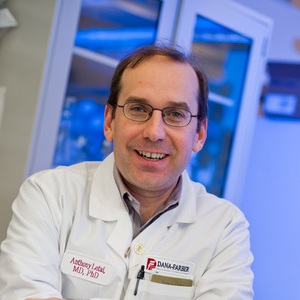
Dr. Letai received his MD and PhD at the University of Chicago. He completed clinical training in Internal Medicine at Brigham and Women's Hospital, Boston, followed by a fellowship in Hematology/Oncology at Dana-Farber Cancer Institute. In 2004, Dr. Letai became an independent investigator at Harvard Medical School and Dana-Farber Cancer Institute where he is now a Professor in Medicine. His laboratory studies how apoptosis can be evaded, particularly in cancer cells, and how this evasion may be detected and targeted. Key to these studies is a novel assay - BH3 profiling, which can detect what blocks cancer cells use to evade apoptosis and serves as a summary measure of how close a cell is to the threshold of apoptosis. Dr. Letai also serves as President of the Society for Functional Precision Medicine, which is founded to improve patient care and outcomes by facilitating implementation of functional assays into clinical care.
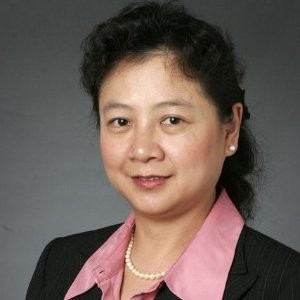
Dr. Liang is the director of Clinical Immunology and Bioanalysis at Medimmune, a subsidiary of AstraZeneca. She leads a centralized functional group supporting Medimmune portfolio from preclinical to post marketing, responsible for biomarker development for pharmacodynamics and patient stratification, pharmacokinetics bioanalysis for exposure-response evaluation, in vitro cytokine release testing for safety assessment and immunogenicity analysis for regulatory submission. Her group also contributes to investigation of mechanism of action and lead selection of candidate drugs as well as development of companion diagnostics. Dr. Liang holds a PhD in Pharmacology from the University of North Carolina at Chapel Hill and received postdoctoral training from the University of Virginia.
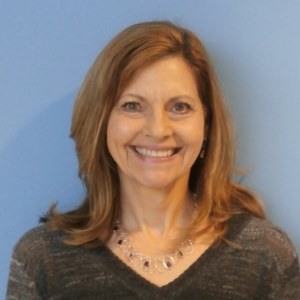
Virginia Litwin, PhD is a thought-leader in analytical method validation and standardization for flow cytometry. Bringing “Cytometry from Bench-to-Bedside” has been the focus of her professional activities since 1999 when she started working in translational medicine at Bristol-Myers Squibb. She is the chair of the Document Development Committee for a new Clinical Laboratory Standards Institute (CLSI) Guideline, H62- Validation of Assays Performed by Flow Cytometry. She is a councilor for both ISAC and the International Clinical Cytometry Society (ICCS). In addition, she serves on the ICCS Advocacy Committee whose mission is to interface with regulatory agencies.
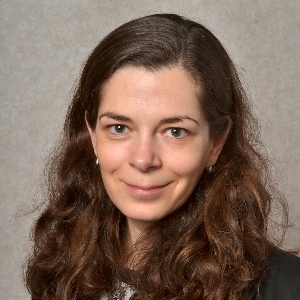
As a physician scientist, I am passionate about transforming cancer patient outcomes through an understanding of disease-induced immune mechanisms and their clinical relevance using flow-cytometry and imaging-based approaches. I believe that the highest quality of diagnostic patient workup while pioneering the development of immunological biomarker and diagnostic assays can only be achieved through multidisciplinary exchange, collaboration and translation. I am particularly interested in the effect of targeted therapies on anti-lymphoma and anti-infection properties of neutrophils, in the characterization of immunoediting in the context of clonal evolution and t-AML/MDS development, and in computational approaches for immune biomarker discovery.
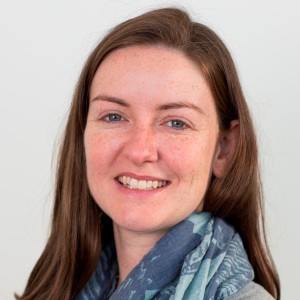
Dr Helen McGuire is a Senior Research Fellow at the Ramaciotti Facility for Human Systems Biology (RFHSB), an initiative established in 2013 to support the development of mass cytometry within NSW. Her research focus and interests lie in the clinical application of immunological studies to a range of human diseases, and she is particularly passionate about applying recent technological advances such as mass cytometry. Having extensively researched in this area, she is highly regarded for her expertise in utilising mass cytometry for clinical profiling. She coordinates collaborative projects within RFHSB across many diverse clinical applications. Collaborators span groups local to the University of Sydney campus and beyond.
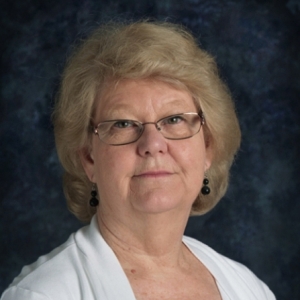
Jonni Moore, Ph.D. is a Professor of Pathology and Laboratory Medicine at the Perelman School of Medicine at the University of Pennsylvania, Scientific Director of the Abramson Cancer Center Flow Cytometry and Cell Sorting Shared Resource, and Emeritus Director, Founder, and currently Senior Advisor of the Clinical Flow Cytometry Laboratory at the Hospital of the University of Pennsylvania. She is currently the President of ISAC. She received her PhD from Thomas Jefferson University in Philadelphia in Microbiology and completed a postdoc with Peter Nowell, MD at the University of Pennsylvania.
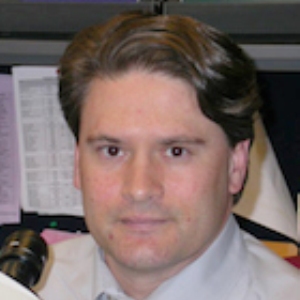
Dr. Morgan is a Professor of Pathology, Obstetrics & Gynecology, and Biomedical Engineering at Oregon Health & Science University (OHSU). He is a NIH-funded principal investigator and the leader of a multi-disciplinary group at the Knight Cancer Institute and the Center for Developmental Health developing a multi-parametric nanoscale flow cytometry diagnostic platform in collaboration with BD Biosciences.
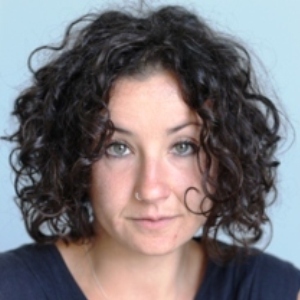
Dr. Nemes completed her PhD in HIV-specific T cell immunology in Italy and France. She then worked on paediatric immune responses to HIV and tuberculosis in Cameroon. She joined the South African Tuberculosis Vaccine Initiative in 2011, where she is involved in the scientific supervision of clinical trials of new tuberculosis vaccines, development of immunodiagnostics and basic immunological studies on adaptive and innate immunity to M. tuberculosis in HIV infected and uninfected children, adolescents and adults. Dr. Nemes is centrally involved in collaborative projects aimed at defining immune correlates of protection from M. tuberculosis infection and tuberculosis disease.
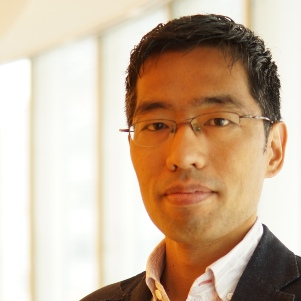
Nitta is a leading expert in cytometry with over 15 years of research and business experiences. He obtained his Ph.D. degree from the School of Engineering, the University of Tokyo in 2006, where his laboratory developed novel instruments for cell function assays including cell migration and degranulation. While in school he started working for a startup, was engaged in development and commercialization of the instruments, then expanded the business to the world as an executive director. After that, he joined a newly started life science division in Sony and worked there for eight years to contribute to launching and expanding a flow cytometer business. Since 2016, he has been working in an ImPACT program to lead the development and commercialization of an extremely innovative cell sorting and analyzing platform, which has formed the basis of K.K. CYBO, a startup he founded with his colleagues in July 2018.
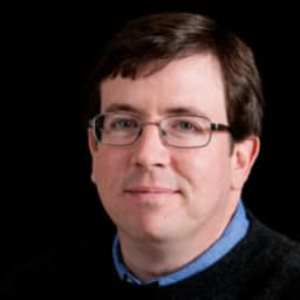
John Nolan is a Professor at The Scintillon Institute, where his research group develops and applies new technologies for cytometry. Current projects in his lab are focused on spectral flow cytometry, single nanoparticle particle analysis, and the biology and applications of extracellular vesicles (EVs). He is on the Editorial Boards of Cytometry and Current Protocols in Cytometry, a Fellow of the American Institute of Medical and Biological Engineering (AIMBE), and a Past President of ISAC.
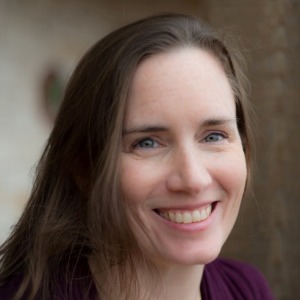
Dr. Nicole Poulton is the Director of the Center for Aquatic Cytometry, and a Research Scientist at Bigelow Laboratory for Ocean Sciences. Nicole’s main research interests focus on phytoplankton and aquatic microbial ecology, including harmful algal blooms and the role of phytoplankton in the global carbon cycle. Her research uses aquatic flow and imaging cytometry, single cell sorting and genomics to examine phytoplankton and bacterioplankton in the oceanic environment. She has over 25 years of flow cytometric experience within the aquatic sciences. Nicole received her PhD in Biological Oceanography from the Massachusetts Institute of Technology and Woods Hole Oceanographic Institution. She joined Bigelow Laboratory as a Research Scientist in 2008 and became the Director of the Center for Aquatic Cytometry in 2014. Nicole is very active in education and outreach and is also an ISAC Shared Resource Laboratory Emerging Leader (2017-2021).
Kylie Price is Head of Research Technology at the Malaghan Institute of Medical Research, New Zealand’s leading independent biomedical institute, which she joined after earning her M.S. in Cell and Molecular Bioscience at Victoria University of Wellington. During her tenure at the Malaghan Institute, she has helped attract over $11.5 million in philanthropic support and grown the Institute’s shared resource laboratory into a renowned centre of excellence. She and her staff of seven provide state-of-the art flow and spectral cytometry, bioimaging, immunohistochemistry, genomics and bioinformatics services to Malaghan researchers and their collaborators worldwide. Her aspiration is to develop innovative cytometry solutions to address researcher needs, providing them with expertise and access to multiple technologies platforms to advance their research goals.
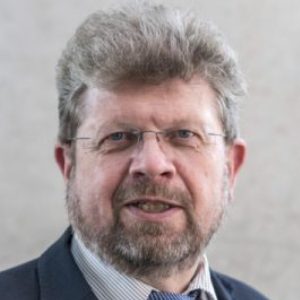
Professor Andreas Radbruch is a biologist by training, having done his Ph.D. at the Genetics Institute of Cologne University. He has been the Director of the German Rheumatism Research Centre Berlin, a Leibniz institute, since 1996 and Professor of Rheumatology at the Charité Medical School of the Humboldt University of Berlin since 1998. Andreas Radbruch is a former President of ISAC and the current President of the European Federation of Immunological Societies (EFIS).
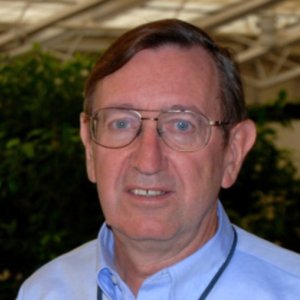
Dr. Recktenwald currently supports academic and industrial teams at Desatoya LLC with his expertise in technology transfer in the field of cytometry. He worked until October of 2012 as VP of Advanced Technology on the identification and evaluation of novel technologies for new cell analysis products at BD Biosciences. Starting in 1981, his group at BD developed the technology for multi-color fluorescence reagent-, instrument- and software-systems for flow cytometry. In 1993 fluorescence detection with single molecule sensitivity was demonstrated by his group using CCD based fluorescence microscopy. As VP R&D of AmCell Corporation from 1994 to 1998, in collaboration with Amgen, he was responsible for leading the development and documentation of the CliniMACSTM system for hematopoietic progenitor cell purification for cell therapy with regulatory clearance in Europe and the US. As VP R&D for BD Biosciences Immunocytometry Systems from 2002 to 2004, he led the completion of the development of several new flow cytometry systems (i.e FACSAria, FACSArray, LSR-II, FACSCanto) and accessories (i.e SPA, LWA). In 2004 he was appointed VP Advanced Technology for BD Biosciences to identify relevant technologies and to integrate them to grow the Biosciences business. Dr. Recktenwald is a BD fellow emeritus and recipient of the 2017 ISAC Distinguished Service Award.
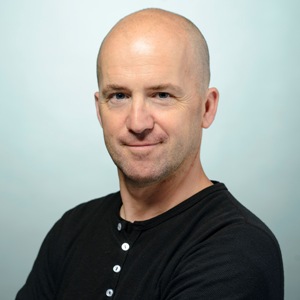
Dr. Emmanuel G. Reynaud is a Lecturer in Cell Biology at University College Dublin. After a PhD in Life Sciences from the University of Paris XI/Orsay, he received an EMBO Long Term Fellowship and moved to the European Molecular Biology Laboratory in Heidelberg Germany where he developed new methods in Cell Biology including laser nanosurgery approaches to study the Golgi biogenesis. He was later involved in the development of the Light Sheet based Fluorescence Microscopy as a member of the Light Microscopy Group headed by Ernst H.K. Stelzer. His laboratory is combining an R&D prototyping space and a cell biology laboratory to investigate the functions of epithelia in health and diseases using a wide range of model systems using light sheet microscopy, 3D fluid phase bioprinting and many DYI open source systems. In 2014, he was awarded the Chevalier (Knight) of the Ordre des Palmes Académiques, one of the highest civilian honours bestowed on academics and educators by the French state.
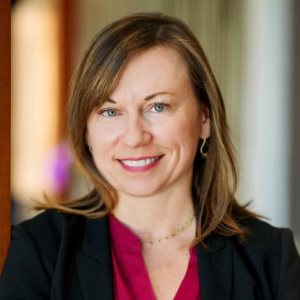
For over a decade, Genoa Ventures’ founder and managing director Dr. Jenny Rooke has been deploying capital at the frontiers of life sciences innovation, with a penchant for technology-fueled solutions and category-defying opportunities. Jenny got her start in venture at Fidelity Biosciences, a Cambridge-based healthcare VC, during their Fund I formation. Jenny then brought her unique toolkit of genetics domain expertise, strategic business acumen, and venture investing to the Gates Foundation, where she deployed and managed over $250M in funding in genetic engineering, diagnostics, and synthetic biology. She also played a key role in establishing the foundation’s investing function. In 2014, Dr. Rooke began independently investing under the brand 5 Prime Ventures, financing her investments using what has become the largest life sciences syndicate on AngelList, and one of the highest-performing AngelList syndicates of any sector. Jenny founded Genoa Ventures in 2018, building on the 5 Prime Ventures track record, in order to scale a proven, differentiated investing strategy, to ensure continued access to the very best deals, and to maximize portfolio returns
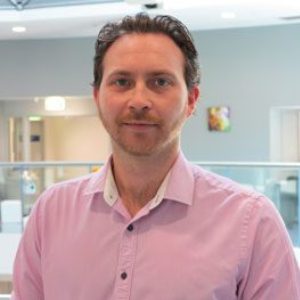
Rob Salomon is an experienced cytometerist<With over 15 years supporting multiple cytometry projects he has provided technical support to thousands of projects. With expertise in the area of deep cellular characterisation, he also has active collaborations across diverse field including cytometry, genomics, photonics and microfluidics. Since 2014 Rob has worked to advance the field of Single Cell Genomics. He is currently the Operations and Technology Manager at the Child Cancer Liquid Biopsy program and undertaking a PhD through the Institute of Biomedical Materials and Devices. In 2017 Rob successfully conceived, built and opened the Garvan-Weizmann Centre for Cellular Genomics. He has since provided significant contributions to other large-scale multidisciplinary programs including, the ACRF Child Cancer Liquid Biopsy Program and the creation and roll out of the Institute for Biomedical Materials and Devices 2.0 plan. He has also advised in the creation of single cell centres at the Malaghan Institute of Medical Research (New Zealand), The Charles Perkins Centre (USYD), the University of Technology Sydney and most recently the Intravital Imaging of Niches for Cancer Immune Therapy (INCITe) proposal at the Garvan Institute for Medical Research.
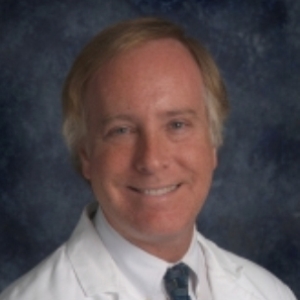
Don Siegel, Ph.D., M.D. is Professor of Pathology & Laboratory Medicine and founding director of the Division of Transfusion Medicine & Therapeutic Pathology at the University of Pennsylvania. He serves as the medical director of the blood bank, apheresis unit, hematopoietic stem cell laboratory, and an NIH T32-supported ACGME-accredited transfusion medicine fellowship program. He directs the Clinical Cell and Vaccine Production facility in Penn’s Center for Advanced Cellular Therapies which has manufactured over 3000 cell products administered to over 1000 patients including the first genetically-modified cell therapy product approved by the FDA and licensed to Novartis Pharmaceuticals under the tradename Kymriah. Dr. Siegel received an undergraduate degree in biophysics from Brown University, a Ph.D. in biophysics from Harvard University, and an M.D. from the University of Pennsylvania. He completed a residency in clinical pathology and fellowship in blood banking/transfusion medicine at the Hospital of the University of Pennsylvania before joining Penn as faculty. Dr. Siegel’s translational research laboratory focuses on the discovery of recombinant human and non-human antibodies relevant to transfusion medicine, benign hematology, infectious diseases, and oncology, particularly for use in the design of targeted therapies such as chimeric antigen receptor T-cells.
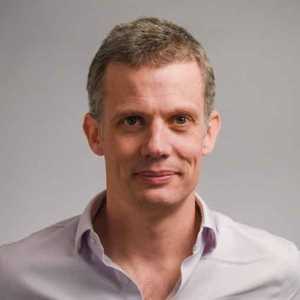
Dr. Peter Smibert leads the Technology Innovation Lab at the New York Genome Center. He performed his PhD research under Prof. Robert Saint at the Australian National University and studied mechanisms of post-transcriptional gene regulation during his post-doc with Dr. Eric Lai at Memorial Sloan-Kettering Cancer Center in New York. At NYGC his team, comprising bio-engineers and molecular biologists, develop novel tools in genomics. Most recently, the lab has focused on single cell genomics, with emphasis on tools obtaining multiple modalities of information from high-throughput single cell assays.
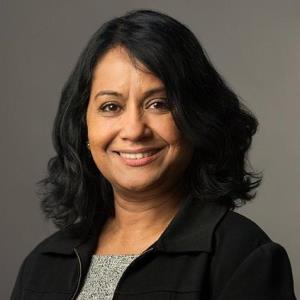
Dr. Meena Subramanyam is Vice President and Global Program Leader in the Oncology division at Takeda Pharmaceuticals. In this capacity, Dr. Subramanyam oversees the strategic development of Alunbrig® in non-small cell lung cancer. Previously, Dr. Subramanyam was Vice President at Biogen in Cambridge, Massachusetts in the Global Biomarker Discovery and Development Division where she held broad responsibilities for developing the biomarker and diagnostics strategy for pipeline products in clinical development. Dr. Subramanyam has over twenty years of experience in the Biotechnology industry. She served as the chair of the National Biotechnology Conference in 2017, and as chair of the BIOTEC section of the American Association of Pharmaceutical Scientists (AAPS). She was the recipient of the Global Leader Award from AAPS in 2019 for her contribution to pharmaceutical sciences and the Healthcare Business Women’s Association’s Luminary award for exceptional leadership. Dr. Subramanyam has authored several scientific publications and white papers on topics related to therapeutic drug development.
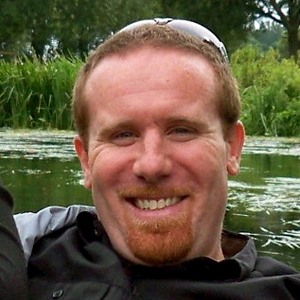
Matthew B. Sullivan studies viruses that infect microbes in their natural settings. The ‘microbiome’ is increasingly recognized to drive Earth’s ecosystems, including in humans, but it does so under constraints imposed by viruses. Sullivan pioneered viral ecogenomics as a means to study viruses in complex communities via quantitative viral metagenomic sample-to-sequence pipelines, new approaches to link viruses and hosts, and developing iVirus, a community-available analytical platform. In the oceans, Sullivan has vastly expanded our understanding of the global virosphere, established automatable scalable taxonomic approaches, and elucidated how ‘wild’ viruses evolve and even metabolically reprogram the most abundant photosystems on the planet. Outside the oceans, Sullivan has adapted these toolkits for use in extreme environments, soils and humans with each new environment leading to myriad discoveries that place viruses at the core of these microbial ecosystems.
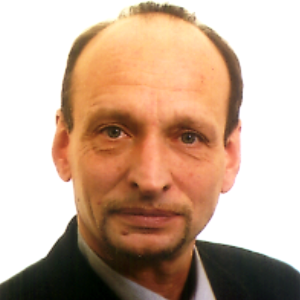
Attila Tárnok studied biology and received his Ph.D. in biophysics at the University of Hamburg. He then worked at the Bernhard-Nocht-Institute for Tropical Diseases, Hamburg, the Center for Molecular Neurobiology Hamburg and the MRC Hammersmith, London. From 1996 to 2016 he directed the research facility for pediatric cardiology at the University of Leipzig Heart Center. He is currently Editor-in-Chief of Cytometry Part A, SPIE Fellow and Guest Professor at Tsinghua and Shandong University, China. He has authored over 300 publications, edited several textbooks and organizes regular conferences on high-content single-cell analysis. His research interests are new technologies for high-content cytometry and predictive medicine.
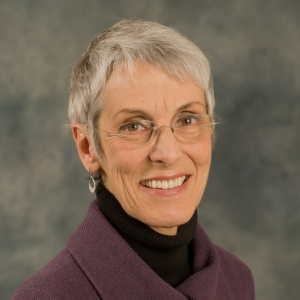
Alice retired in 2014 as Vice President, Science Policy and Technical affairs, for the Pharmaceutical Research and Manufacturers of America (PhRMA) where she coordinated the association’s activities related to all science and regulatory aspects of pharmaceutical development and operations. Prior to joining PhRMA, Alice served as President for the Generic Pharmaceutical Industry Association (GPIA), following two years as GPIA Vice President, Scientific Affairs. Prior to GPIA, she worked for Merck & Co. for 21 years, holding various positions in Pharmaceutical R&D, Drug Metabolism, Clinical Research, and Clinical Development for International Marketing. She earned a B.Sc. in Pharmacy/M.Sc. in Pharmaceutics from the Philadelphia College of Pharmacy & Science (1966/1969), a Ph.D. in Pharmaceutical Chemistry (UCSF 1979), and an MBA in Industrial Relations and Organizational Behavior (Temple University 1985). She is a charter member and Fellow of the American Association of Pharmaceutical Scientists (AAPS), serving in numerous leadership roles for 30+ years, including the elected role of President. She recently served for several months, on a volunteer basis, as AAPS Interim Executive Director.
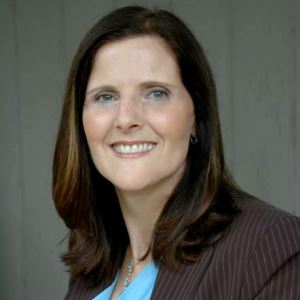
Janet joined The University of Texas in 2008, building on a successful pharmaceutical industry career, leading efforts ranging from R&D and Human Resources to Global Corporate Strategy. Leading the Drug Dynamic Institute, Janet brings novel approaches and solutions that promote development of technologies, facilitate bioscience startups, and cultivate interdisciplinary technology readiness. Janet is known in academic circles for developing cutting-edge ways and engaging educational tools. Her successful edX MOOC, Take Your Medicine, has enrolled tens of thousands of students, who explore how new drug therapies are developed. A leader in efforts to empower entrepreneurs and women, Janet’s involvement in local and global innovation efforts include the Cherie Blair Foundation for Women, Texas Venture Labs, and the Cockrell School of Engineering’s Innovation Center. Janet serves as one of UT’s Public Voices Fellow with the OpEd Project and her recent Board service includes the Ann Richards School for Young Women Leaders, the Health Promotion Council, and Harvard Kennedy School Women’s Leadership Board.
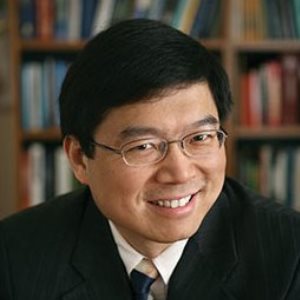
Lihong Wang earned his Ph.D. degree at Rice University, Houston, Texas under the tutelage of Robert Curl, Richard Smalley, and Frank Tittel. He is Bren Professor of Medical Engineering and Electrical Engineering at California Institute of Technology. His book entitled “Biomedical Optics: Principles and Imaging,” one of the first textbooks in the field, won the 2010 Joseph W. Goodman Book Writing Award. He also edited the first book on photoacoustic tomography. He has published over 500 peer-reviewed articles in journals, including Nature, Science, PNAS, and PRL, and has delivered over 500 keynote, plenary, or invited talks.
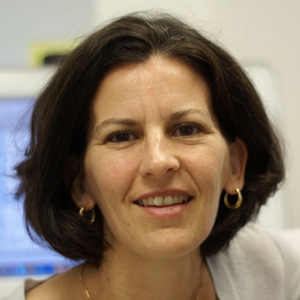
Dr. Alissa Weaver is Cornelius Vanderbilt Professor of Cell and Developmental Biology at Vanderbilt University School of Medicine and a Fellow of the American Association for the Advancement of Science. She also directs the Vanderbilt Program for Extracellular Vesicle Research. The overall goal of her research is to understand the function of extracellular vesicles and how they drive tumor metastasis. The laboratory has a particular focus on how secretion of exosome-type extracellular vesicles promote cancer cell invasion and motility and alter the tumor microenvironment. The laboratory is also studying fundamental questions in the extracellular vesicle (EV) field, including how RNA and protein cargoes are sorted into EVs, how secretion of exosomes is controlled, the role of specific EV cargoes in driving tumor behavior, and the impact of EVs on functions of recipient cells across a variety of biological contexts.

Joshua Welsh is interested in developing novel high-throughput assays, equipment, and software for the detection and standardization of extracellular vesicles (EVs) using flow cytometry, with the ultimate aim of utilizing EVs as clinical biomarkers for use in personalized medicine.
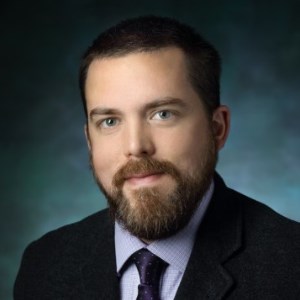
Dr. Kenneth W. Witwer is an associate professor of molecular and comparative pathobiology and neurology at the Johns Hopkins University School of Medicine. His research focuses on extracellular vesicles, RNA-mediated regulation, biomarker discovery, and therapeutic modulation of innate and intrinsic defenses. His group is particularly interested in neurodegenerative diseases including the HIV-associated neurocognitive disorders, Alzheimer's, and Parkinson's. He has served as Secretary General and Executive Chair of Science and Meetings for the International Society for Extracellular Vesicles (ISEV), the leading scientific organization in his field. He has been a scientific advisor to the US National Institutes of Health and the US Environmental Protection Agency. He is an associate editor of the Journal of Extracellular Vesicles.
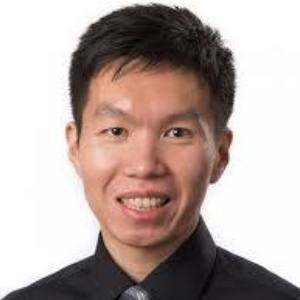
Professor Di Yu was awarded his PhD from the Australian National University in 2007, followed by a postdoctoral training at the Garvan Institute of Medical Research from 2008-2010. He established the independent research laboratory at Monash University in 2011 and then returned to ANU in 2017. In 2019, he joined the University of Queensland Diamantian Institute and was appointed as Professor in Immunology. Professor Di Yu’s research focuses on the function of T cell subsets in human health and disease, making major contributions to the discovery of follicular helper and cytotoxic T cells. Through understanding mechanisms underlying T cell differentiaation and function, his research team aims to design new strategies to monitor and modulate the immune system to treat autoimmune diseases, infection and cancer. He has published in top-tier journals including Nature, Nature Immunology, Nature Medicine and Immunity and led human clinical trials for vaccination and autoimmune diseases. He is currently a Bellberry-Viertel Senior Medical Research Fellow and was ranked as Clarivate Highly Cited Researcher (2019).
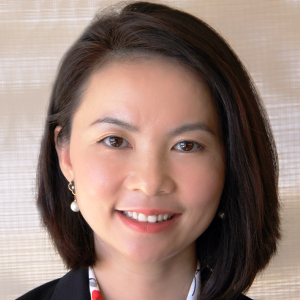
Qianjun Zhang obtained her Master’s degree in immunology from the University of Colorado, Denver, United States. She is now a Staff Application Scientist at Beckman Coulter Life Sciences. She has a special interest in teaching and learning state of the art technologies in the field. She has been giving cytometry related talks at various universities and institutions around the globe, reaching thousands of attendees in the past few years. As a committee member of the Live Education Committee of ISAC, she dedicates her time and efforts in serving the cytometry community, organizing workshops, and teaching. She is the Co-Chair of the organizing committee for the Sino-US Cytometry Workshops in the past six years. She is also an emeritus ISAC Marylou Ingram Scholar and former ISAC Council Member.
| Access Date | Quiz Result | Score | Actions |
|---|
